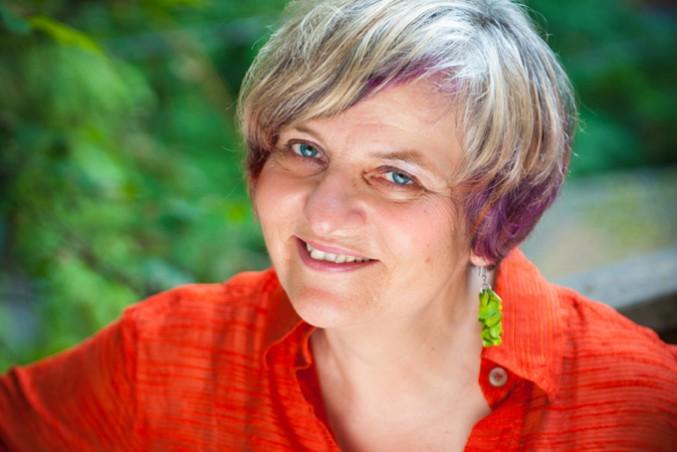By Natalia Balcerzak
Writer, filmmaker, activist and associate Ryerson professor Marusya Bociurkiw is the runner-up for CBC’s Literary Non-Fiction Award for her book, A Girl, Waiting.
The story is about Bociurkiw’s teenage self struggling with ways to express herself in her disconnected family household. Set in the 1970s, where there were few resources for anyone that identified as queer, she experiments with all types of sweet-tooth recipes to figure out a new way of being.
“The minute that you start writing about food, your audience expands because these days everybody can relate to food — everybody’s a foodie,” said Bociurkiw. “It allows me to explore relationships through the medium of food and [how they] are expressed through food whether it’s anger, love, or in this case — longing.”
She reflects on her youth when she couldn’t openly express herself. Through food she reveals the feminist, Eastern European and queer aspects of who she is.
Bociurkiw said through writing, she took a hard look at her family. In her contest entry — an excerpt from her book — she describes her distant connection with her mom, who appears in her other works.
Since finishing the book, Bociurkiw’s mother passed away. But while editing the book for submission, she said she tried to “work through [her] sort-of troubled mother-daughter relationship.”
As a creative non-fiction, A Girl, Waiting often uses metaphors to differentiate it from realist autobiographies. In the excerpt, making fudge ribbon pie relates to exhaustive Catholic worships she misses by feigning a coma. Hours baking never curbed her depressive teenage hormones, but it silenced her siblings’ taunts and appeased her father’s appetite.
“There’s a bit of vulnerability in putting personal stories [like this] out there in the world, as there’s always tension between fact and fiction,” Bociurkiw said.
When it comes to Bociurkiw’s past queer writing, she said the queer community makes her both comfortable and uncomfortable.
“My queer friends are incredibly important to me, they’re who I write to and they’re the ones who are able to understand what I’m writing about,” she said. “On the other side, the main-streaming of LGBT communities like the corporatization of Pride, is something I write against — it’s a constant force of aggravation and inspiration at the same time.”
It’s important to Bociurkiw that queer writing retain its radical roots. “[I’d like for people] to get a deeper understanding of what it is to grow up queer, it’s neither tragic nor incredibly easy, it’s an existence that is forged through the everyday — we had to figure this stuff out on our own and we did.”
When she found out that she could get marks for creating stories in high school, she used writing as a survival mechanism. Bociurkiw became involved in all forms of art, from theatre to baking. “[Art] kept you sane and it prevented you from the more tragic consequences,” she said. It was an escape from her traditional Ukrainian upbringing and a place for her to meet like-minded individuals.
Presently, she focuses on media activism, and produces documentaries, writes and teaches students to use these mediums for good. She said that she’s noticed young people are becoming aware of what they can do ethically with social media, despite its dominance in our modern world.
As for desserts, Bociurkiw said that although she loved making them, it’s a part of her past and she doesn’t bake like she used to.
“The only thing I do bake now is pie, I have five pounds of peaches in my fridge screaming to be made into pie,” she said. “I leave it to others to make me desserts.”










Leave a Reply